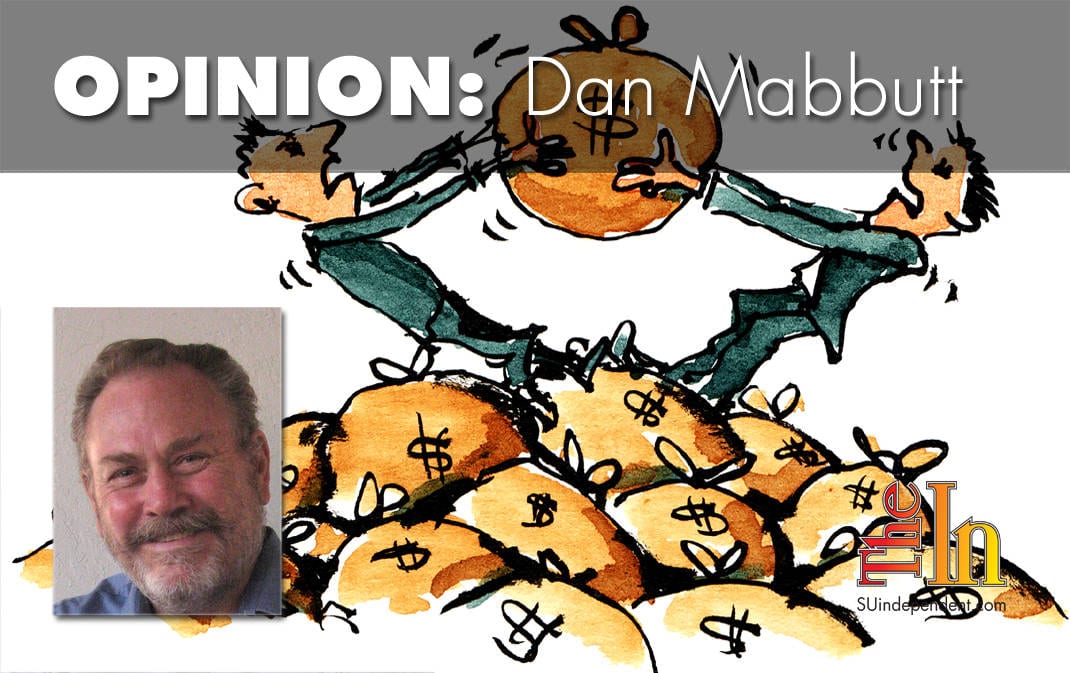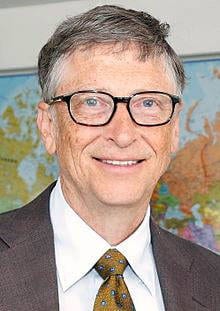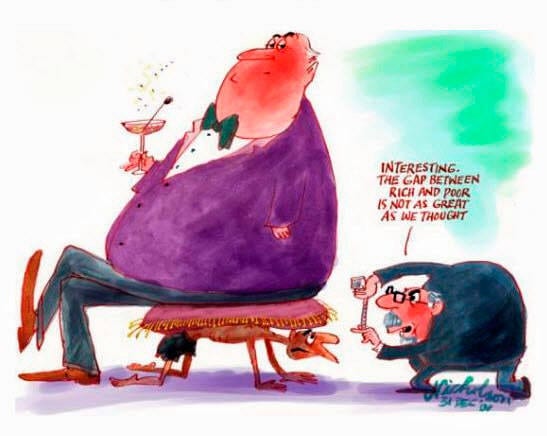
People often think that any and all wealth they have belongs exclusively and only to them and nobody, but nobody, else has any claim to it. I believe that wealth belongs to people who make it as well as well as to people who make it possible for them to make it. The New York Times recently ran an article about how the super-rich avoid taxes. A comment about the article — picked by the Times for special notice — was typical of this point of view. “John B” from Texas wrote, “It’s their money. They earned it, not the central government.”
No. It’s not. And no, they didn’t.
The biggest reason that the super-rich are super rich is that they live in America and they have profited from being a part of our civilization. In fact, there is a trend in America where the rich had nothing whatsoever to do with earning the wealth they enjoy — other than being born. In an interview with the Nobel Prize-winning economist Paul Krugman, journalist Bill Moyers set the record straight:
“We are heading into a future dominated by inherited wealth as capital concentrates in fewer and fewer hands, giving the very rich ever greater power over politics, government, and society.”
Krugman explained why this happens:
“If you have a large fortune, or a family has a large fortune, they can — the inheritors of that large fortune — can live very, very well. They can live an extraordinary standard of living and still put a large fraction of the income from that fortune aside and the fortune will grow faster than the economy.”
For example: you, I, and the super-rich will usually own a car. When you and I buy a car, we sacrifice a large part of our annual income, often paying back a loan over years. We pay money to lenders to own a car and what we have left over is often just enough to live on. But when the rich buy a car, they pay money that they already have. The money they have left over pays interest to them. They just grow richer while we grow poorer. The rich don’t “earn” that extra income. It comes to them because there is a system of banking and commerce in America that gives it to them just because they already have more money than they need to live and also because they live here.
I’m not advocating that the government buy everyone a car. I’m not advocating that our system of banking and finance be abolished. I’ve heard all the arguments about “incentive” and “rewards” for innovation and hard work. Incentive is important, but so is fairness and keeping our civilization — that means our government — functioning.
I’m advocating that people who have wealth because they are part of our civilization do their fair share to pay for our civilization. That’s something they’re not doing now. The money the government gets should be used for things that benefit all of us: roads, defense, and — yes — keeping some of the poorest of us from slipping further into the depths of poverty and despair.

And what of those who did “earn” their own money? For example Bill Gates, Warren Buffet, and people like them? Gates and Buffet founded “The Giving Pledge.” The organization states its goal as such: “The Giving Pledge is a commitment by the world’s wealthiest individuals and families to dedicate the majority of their wealth to philanthropy.” It’s an admission that they owe their wealth to the society that gave them the opportunity to earn it.
This isn’t a perfect solution either. In practice, this means that that wealth goes to those causes that the super-rich value, not to things that you and I decide are important. For example, Paul Allen, the co-founder of Microsoft along with Bill Gates and now a neighbor of mine since he bought the former Trees Ranch that borders Springdale, lists the things that his wealth will go toward in his letter to The Giving Pledge:
“Through my giving, l seek to tackle climate change, prevent dangerous epidemics, save Earth’s most iconic species from extinction and restore our oceans to health, before it’s too late. I am striving to advance the frontiers of science in ways that can help researchers prevent brain cancers, dementia and other diseases, through the Allen Institutes for Brain Science and Cell Science. I also support the cultural institutions, arts organizations and social service nonprofits that do so much to strengthen our world, particularly in my hometown of Seattle and throughout the Pacific Northwest.”
Commendable goals, and it could be argued that they’re better than another aircraft carrier (defense comprises 19 percent of the federal budget) or health care (medicare and medicaid comprise 24 percent of the federal budget). But the singular fact is that Paul Allen gets to decide where the money goes. We don’t. You and I have no choice whatsoever in the things that Paul Allen picks. Jeff Bezos (Amazon.com) is spending $42 million to build a clock that will keep time for 10,000 years.
Timing is an issue too. Allen may have pledged to give away at least half of his wealth at some future time, but it won’t actually do anyone else any good until he actually does it. Aaron Dorfman, executive director of the National Committee for Responsive Philanthropy, estimates:
“… most of the money will wind up in university or foundation endowments, with only about 5 percent of the asset base getting spent on charitable purposes each year in perpetuity. The corpus will be invested in the stock market or other vehicles intended to earn a financial return, and only a tiny fraction of the assets will be working to advance a charitable goal.”
Great! Corporate America needs more money, I’m sure. Defense and health care can wait.

In the meantime, super-rich like Sheldon Adelson — who just bought the largest newspaper in Las Vegas — the Koch brothers, and even George Soros use their billions to control our government. It is becoming truer every day that we have the best politicians that money can buy. Wouldn’t that money being spent on K Street lobbyists do more good if it went to defense or health care?
I’m very aware that this is something that has been written about and debated since before Karl Marx was a foreign correspondent for the New-York Daily Tribune. I still can’t understand one fact of the debate, and I wish someone would set me straight about it.
Why is it that the people making minimum wage (or less) are the bedrock support for the super-rich people responsible for holding them down?



